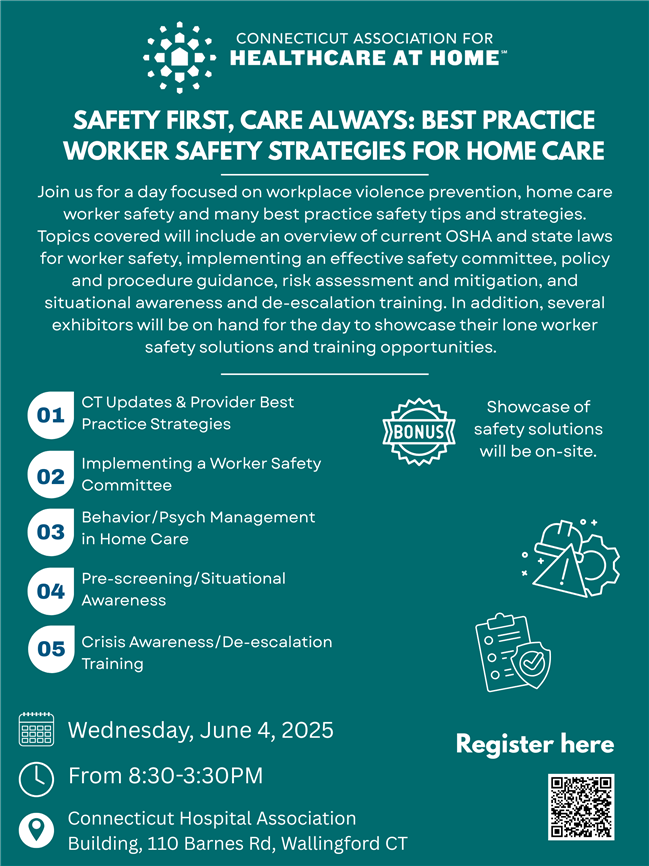 |
||||||||||||||||||||||||||||||||
| May 8, 2025 | ||||||||||||||||||||||||||||||||
Source: CT News Junkie, May 5, 2025
HARTFORD, CT — A roundtable discussion on the impact of reductions in federal funding for public health generated plenty of examples Friday.
Connecticut has already seen nearly $150 million in federal public health grants terminated by the Trump administration, and the loss of the funding is already being felt across the state.
“Many of our local health departments had to lay people off,” said Dr. Manisha Juthani, commissioner for the Department of Public Health. “They may have had epidemiologists, they may have had community health workers, they may have had nurses, they may have had people working on vaccine clinics. The list goes on and on.”
Source: CT Mirror, May 1, 2025
State House Republicans proposed a $54.4 billion two-year budget Thursday that would trim electric rates and bolster local schools, social services and child care, while cutting medical assistance for undocumented residents.
The plan, which would spend less than both Gov. Ned Lamont and majority Democratic legislators have proposed, also would freeze state employee wages for two years, require big savings from hiring limits and across-the-board cuts to all agencies, and force public colleges and universities to tap their robust reserves.
Source: CT Mirror, April 30, 2025
Drafting a state budget that spends tens of billions of dollars annually, often increases taxes or fees at least modestly — and always leaves some groups dissatisfied — is never an easy process.
Add to the mix the potential loss of billions in federal aid later this year, and the politics goes beyond tricky as legislators begin the final push to craft a new spending plan before they adjourn five weeks from now.
Majority Democratic legislators recently reminded Republicans to be careful with their budget rhetoric — because they may have to put their votes where their mouths are.
Source: Home Health Care News, May 2, 2025
With providers on edge regarding massive cuts to Medicaid and other health care programs, the White House officially released its budget proposal on Friday, which includes a $674 million reduction in funding for the Centers for Medicare and Medicaid Services (CMS), which controls government health insurance programs critical to the home-based care community.
While the Trump administration claimed the cuts won’t affect Medicare or Medicaid beneficiaries directly, the announcement triggered concern from home-based care advocates.
Source: Home Health Care News, May 2, 2025
Despite operating on razor-thin margins and facing persistent reimbursement challenges, some home-based care providers are setting themselves apart by leaning into innovation.
By embracing alternative payment models, virtual health and opportunities like hospital-at-home programs, providers can save themselves from home-based care’s “self-inflicted challenge” of not capitalizing on the industry’s evolving opportunities, according to Bill Dombi, senior counsel for Arnall Golden Gregory law firm. He also formerly led the National Association for Home Care & Hospice (NAHC), which following a merger is now the National Alliance for Care at Home.
While workforce shortages, potential Medicaid cuts and unsustainable payment rates threaten the industry, opportunity awaits those willing to evolve, Dombi said.
Source: A Hospice & Palliative Care Today Compilation, May 5, 2025
Source: Medscape, April 30, 2025
Robert Den, MD, a radiation oncologist in Philadelphia, constantly reminds himself that while he’s in the "cancer world" every minute of the day, his patients aren’t.
“As oncologists, we may be meeting with the third patient that day with a newly diagnosed metastatic cancer, but for this individual, this is their first time hearing news like this,” Den told Medscape Medical News.
That’s just one reason Den says words matter. In fact, what not to say to patients is as important as what to say, especially when a patient is facing a difficult diagnosis. A paper published in Mayo Clinic Proceedings titled Never Words: What Not to Say to Patients With Serious Illness offers a model of words and phrases physicians shouldn’t use with patients, such as “there is nothing else we can do,” the words “fight or battle,” and “withdrawing care.”
Source: Alliance Daily, May 2, 2025
In early 2024, the Centers for Medicare & Medicaid Services (CMS) announced a temporary pause through the fall of 2024 in the distribution of the Program for Evaluating Payment Patterns Electronic Reports (PEPPERs) and Comparative Billing Reports (CBRs). CMS indicated the pause in distribution of the reports was related to their work to enhance the quality and accessibility of the PEPPERs and CBRs.
While this pause was extended beyond fall 2024, CMS recently informed the Alliance that the agency is close to testing a new system and intends to release PEPPERs in the summer of 2025.
|
||||||||||||||||||||||||||||||||
| Past Issues | Subscribe | cthealthcareathome.org | Advertise with Us | ||||||||||||||||||||||||||||||||






